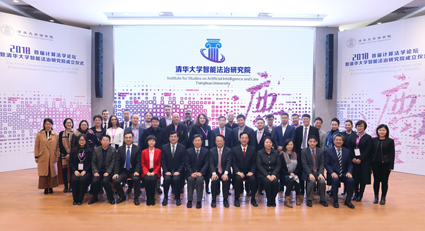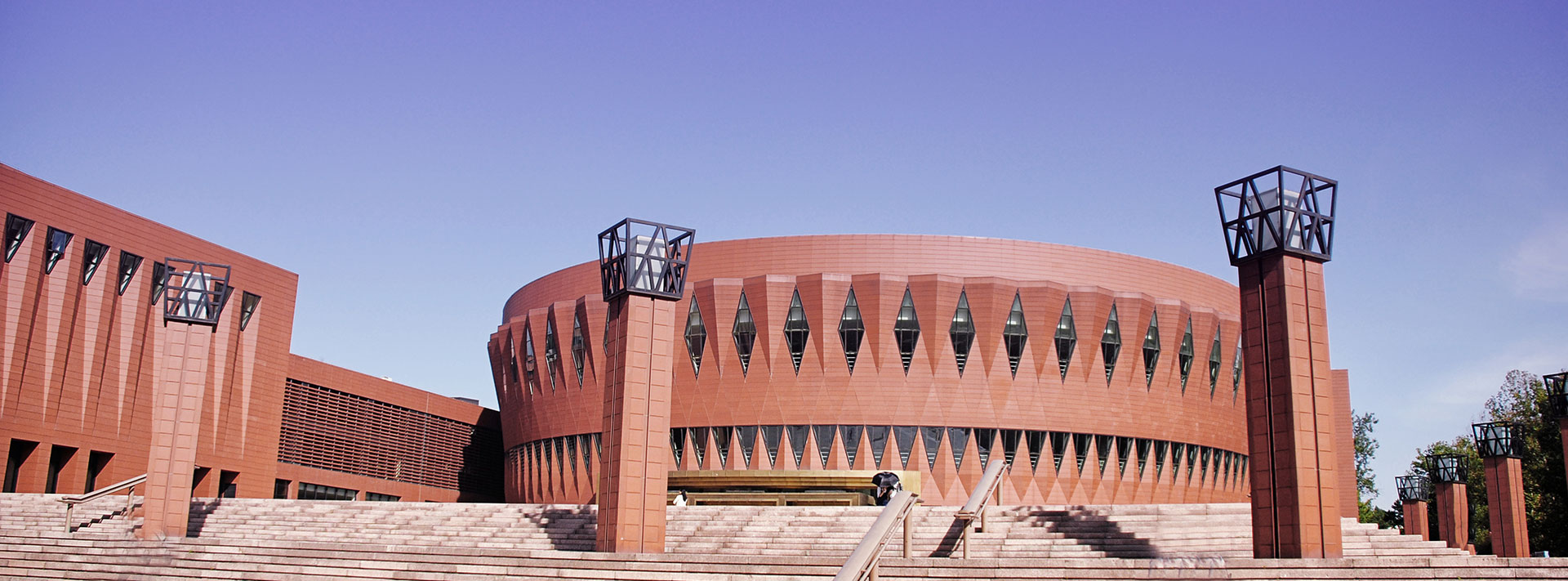On December 15th, 2018, the First Computational Law Forum was held in Beijing by Tsinghua University School of Law, one of the top law schools in China. The forum focused on discipline development and talent cultivation; meanwhile, the Tsinghua University Institute for Studies on Artificial Intelligence and Law (“THUIAIL”) was officially launched in this forum. As the first and a groundbreaking computational law forum in Mainland China, regulators, scholars and industrial players in relevant fields all got deeply involved and shared their viewpoints.Prof. WANG Xiqin, Executive Vice President of Tsinghua University, delivered the opening speech to warmly welcome all guests. He indicated that, according to the principle of the law-based governance of China, Tsinghua University attaches great importance to developing the discipline of law and promoting the interdiscipline of law and computer science. He hoped that with the support of the University and the collaboration with science and engineering departments, School of Law could promote discipline development and talent cultivation of computational law.
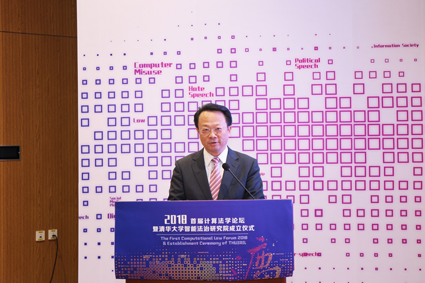
( Prof. WANG Xiqin, Executive Vice President of Tsinghua University)
Mr. XU Xianming, Deputy Chairman of the Supervisory and Judicial Affairs Committee of the National People's Congress and Chairman of Council of Legal Education in Ministry of Education, delivered the first keynote speech. He mentioned that the revolution of “humanities and social science” is clearly required by the central instructions, where the interdiscipline of social science and technology science comes first. He hoped that law schools, especially Tsinghua Law School can lead the reform and innovation of legal education into a new era.

(Mr. XU Xianming, Deputy Chairman of the Supervisory and Judicial Affairs Committee of the National People's Congress)
Mr. ZHANG Shuyuan, Vice President of the Supreme People’s Court of P.R.C, stated a keynote speech from the perspective of judicial practice. He introduced that the judicial system has achieved the all-around online service for the judges, the parties and the whole society, and implemented the principle of transparency throughout the judicial process via intelligent technologies. He hoped that with the profound support from the Supreme People’s Court, Tsinghua will function as a think tank and boost the construction of Smart Court.
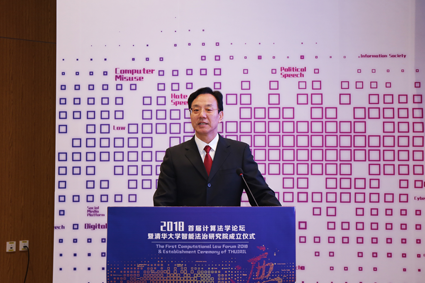
(Mr. ZHANG Shuyuan, Vice President of the Supreme People’s Court of P.R.C)
Mr. ZHANG Xueqiao, Deputy Procurator-General of the Supreme People’s Procuratorate of P.R.C, delivered the last keynote speech. He viewed it critically important to combine the in-depth Judicial Reform with the application of modern technology, in accordance with the basic principles of the judiciary. He also expressed his vision of the interaction between the Supreme People’s Procuratorate and Tsinghua, the construction of Smart Procuratorate, and the future of China navigating a way out to a brighter judicial culture.
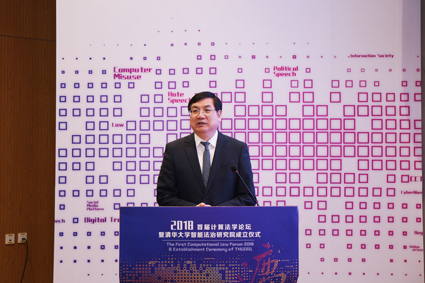
(Mr. ZHANG Xueqiao, Deputy Procurator-General of the Supreme People’s Procuratorate of P.R.C)
After all these impressive speeches, the decision of the Council Meeting of Tsinghua University on December 12th was announced: to approve the establishment of THUIAIL, which is led and operated by School of Law, allied with Department of Computer Science and Technology, School of Software and School of Social Science. Key speakers, representatives from co-founding departments, and other important guests from judicial and academic fields jointly inaugurated the THUIAIL with the witness of the audience.
In the succedent panels, scholars and industrial experts from China and other jurisdictions presented their speaking under a series of topics. The themes of panels included “Interdisciplinary and Practice Integrated Computational Law”, “Computational Law and Big Data Legal Issues”, “Legal Issues of Big Data Application”, “Legal Profession Intelligent Aid Technology and Practice”, and “Legal Issues of Artificial Intelligence Technology”. The inspiring and innovative presentations and remarks of speakers and panelists invoked great discussions among the audience in each panel accordingly.
In the closing ceremony, Vice President LIN Wei of Chinese Academy of Social Sciences and Dean LONG Weiqiu of Law School, Beihang University remarked the whole forum from the view of legal education in the era of AI. They expressed warm congratulations to THUIAIL and sincere belief in the development of computational law in Tsinghua University School of Law. Lastly, Prof. SHEN Weixing, Dean of Tsinghua University School of Law, made the closing remarks.
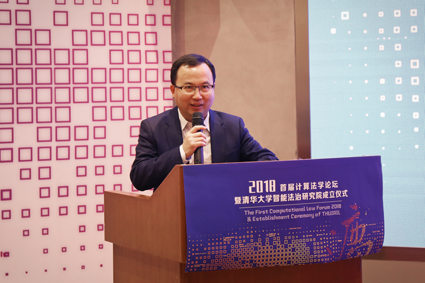
(Prof. LIN Wei, Vice President of Chinese Academy of Social Sciences)
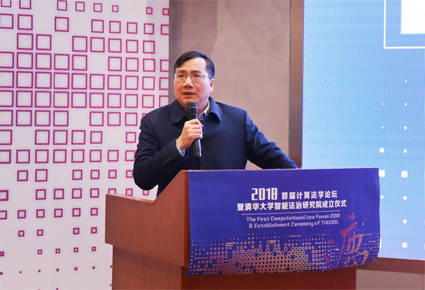
(Prof. LONG Weiqiu, Dean of Law School Beihang University)
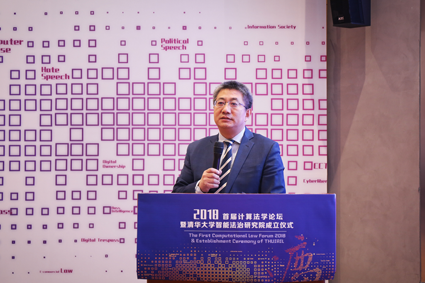
(Prof. SHEN Weixing, Dean of Tsinghua University School of Law)
THUIAIL is committed to establishing a leading interdisciplinary research and innovation incubation center. THUIAIL hopes to promote exchanges and integration between law and computational sciences, cultivate comprehensive talents and encourage academic innovation and industrial transformation. THUIAIL aims to provide a legal framework for the emerging science and technology and also to provide a data-driven force for the rule of law in China. THUIAIL hopes to develop a multi-disciplinary collaboration amongst academia, judiciary, the government and the industry, serving to develop a system of AI and law suitable for Chinese contexts and the global landscape.
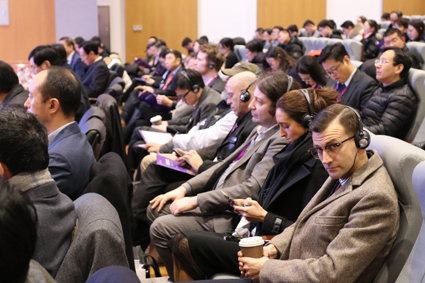
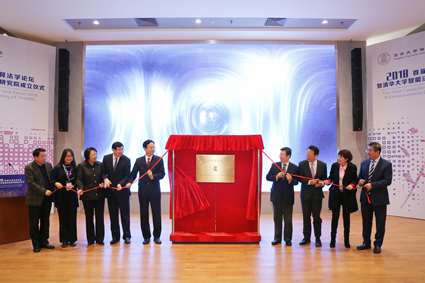
The First Computational Forum was hosted by Tsinghua University School of Law, and attracted scholars and experts from various institutions and companies. Representatives from other schools of Tsinghua University, including Department of Computer Science and Technology, Department of Political Science, School of Software, and School of Social Sciences also participated in the forum. Scholars from domestic universities like Renmin University of China, Beihang University, Beijing Normal University, Beijing Foreign Studies University, Sichuan University, and Jiangxi University of Finance and Economics, as well as scholars and experts from foreign institutions like Stanford University, MIT, Cornell University, Georgetown University, West Virginia University, Brooklyn Law School, University of Toronto, National University of Singapore, University of Hong Kong and Paul Hastings(Europe) LLP were also deeply and actively involved in the discussions about computational law. Meanwhile, industrial players showed great interest, and managers and experts from Alibaba Group, Huawei Global, Baidu, Ant Financial, iFLYTEK, Jingyou Technology Group, Huayu Yuandian, Xiaomi, Microsoft ARD, AWS GCR and IBM shared their opinions on the related topics during the forum.
